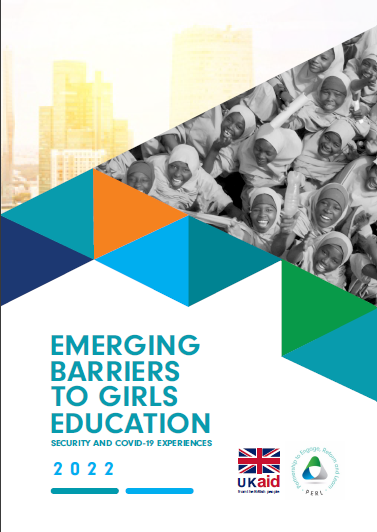Nigeria is estimated to have the third highest population of out-of-school children worldwide. Approximated at 19.7 million, this figure is nearing double the 10.5 million recorded in 2020, of which generally a larger proportion are girls. Before the COVID-19 pandemic, barriers to enrolment and regular attendance were already more pronounced for girls. The studies conducted conclude that girls are more at risk than boys of dropping out of school due to the long-term effects of the lockdown. Poverty, early marriage, and the perceived lack of safety in school are the three biggest barriers affecting girls and their education. The inability and unwillingness of caregivers to pay for school fees, uniforms, and learning materials make the prospects of returning to school uncertain for many girls whose caregivers are more likely to invest in boys' education. This study was conducted in Jigawa, Kaduna, and Kano states and aimed to understand girls' learning experiences, including their anxieties about insecurity. It provides a snapshot of the current realities girls aged 11-17 years face, which make it difficult to access, perform, finish and return to education. It also presents insights and recommendations to respective state governments to improve education service delivery, especially in educating their girls. It builds on ongoing reforms and lessons learned from education interventions supported by the Partnership to Engage, Reform and Learn (PERL) programme and the Foreign, Commonwealth and Development Office's (FCDO) wider support to Jigawa, Kaduna and Kano state governments. The study consisted of a literature review and primary research using quantitative and qualitative approaches, including the school-based survey. Overall, 872 participants contributed to the study, including 713 adolescents - 573 girls and 140 boys currently enrolled in secondary school. Focus groups and in-depth interviews were held with female student dropouts, educators, parents, caregivers, community leaders, and key informants in the public and non-profit sectors. Six local government areas (LGAs) were selected in Jigawa and Kano states, while five LGAs were selected in Kaduna based on security advisory. A substantial level of importance was placed on protection for all under-aged respondents and the critical importance of children's voices in evidence generation and the shaping of interventions.
